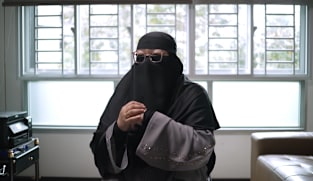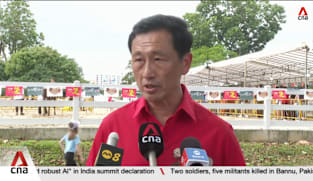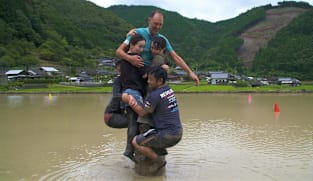Ong Ye Kung on Singapore’s COVID-19 response
Singapore will set up a new Communicable Diseases Agency (CDA) as part of a restructuring of the Ministry of Health (MOH) to better prepare for the next pandemic. The CDA will oversee disease preparedness, prevention and control, surveillance, risk assessment and outbreak response. The aim is to institutionalise different capabilities that can be deployed nimbly in a future crisis. MOH will also retain a permanent Crisis Strategy and Operations Group (CSOG), to maintain surge readiness for a mid-sized outbreak and other health emergencies. CSOG was established during the COVID-19 pandemic and is behind operations such as contact tracing, home quarantine, transfer to isolation facilities, testing, vaccinations and home recovery. A Healthcare Reserve Force will also be set up, comprising ex-healthcare workers and volunteers who will be trained as reinforcements for larger surges. Health Minister Ong Ye Kung announced these measures in Parliament on Tuesday (Mar 21). Singapore also intends to “future-proof” the Infectious Diseases Act to deal with a wider range of scenarios. The amended law will have four public health situational tiers which will replace the current DORSCON colour-coding. They are baseline or normal, outbreak, threat and emergency - which Mr Ong described as being “more intuitive”. The law will also spell out what measures could take place under each state. Another major area of focus will be to secure vaccines and medical supplies. Mr Ong revealed that expired COVID-19 vaccines make up about 15 per cent of doses ordered by Singapore, with a total value of S$140 million. This is likely to rise to nearly 25 per cent in the coming months before stabilising. Mr Ong described this as an “insurance premium” that Singapore was willing to pay, to stave off the risk of catastrophic consequences - in terms of the economic impact of circuit breakers and also loss of lives. He laid out Singapore’s vaccine strategy going forward. First, MOH will maintain and periodically refresh an adequate stock of COVID-19 vaccines. This will ensure the elderly and vulnerable continue to be protected, and facilitate a rapid response if there is a major or more severe pandemic wave. A network of vaccination centres will be maintained, so that a booster can be administered to all seniors and the medically vulnerable within three weeks if needed. Meanwhile, Singapore is negotiating agreements to secure early access to vaccines against other pathogens with pandemic potential. It will also invest in vaccine research and development, as well as anchor six vaccine manufacturing plants in the country.
Singapore will set up a new Communicable Diseases Agency (CDA) as part of a restructuring of the Ministry of Health (MOH) to better prepare for the next pandemic. The CDA will oversee disease preparedness, prevention and control, surveillance, risk assessment and outbreak response. The aim is to institutionalise different capabilities that can be deployed nimbly in a future crisis. MOH will also retain a permanent Crisis Strategy and Operations Group (CSOG), to maintain surge readiness for a mid-sized outbreak and other health emergencies. CSOG was established during the COVID-19 pandemic and is behind operations such as contact tracing, home quarantine, transfer to isolation facilities, testing, vaccinations and home recovery. A Healthcare Reserve Force will also be set up, comprising ex-healthcare workers and volunteers who will be trained as reinforcements for larger surges. Health Minister Ong Ye Kung announced these measures in Parliament on Tuesday (Mar 21). Singapore also intends to “future-proof” the Infectious Diseases Act to deal with a wider range of scenarios. The amended law will have four public health situational tiers which will replace the current DORSCON colour-coding. They are baseline or normal, outbreak, threat and emergency - which Mr Ong described as being “more intuitive”. The law will also spell out what measures could take place under each state. Another major area of focus will be to secure vaccines and medical supplies. Mr Ong revealed that expired COVID-19 vaccines make up about 15 per cent of doses ordered by Singapore, with a total value of S$140 million. This is likely to rise to nearly 25 per cent in the coming months before stabilising. Mr Ong described this as an “insurance premium” that Singapore was willing to pay, to stave off the risk of catastrophic consequences - in terms of the economic impact of circuit breakers and also loss of lives. He laid out Singapore’s vaccine strategy going forward. First, MOH will maintain and periodically refresh an adequate stock of COVID-19 vaccines. This will ensure the elderly and vulnerable continue to be protected, and facilitate a rapid response if there is a major or more severe pandemic wave. A network of vaccination centres will be maintained, so that a booster can be administered to all seniors and the medically vulnerable within three weeks if needed. Meanwhile, Singapore is negotiating agreements to secure early access to vaccines against other pathogens with pandemic potential. It will also invest in vaccine research and development, as well as anchor six vaccine manufacturing plants in the country.



















